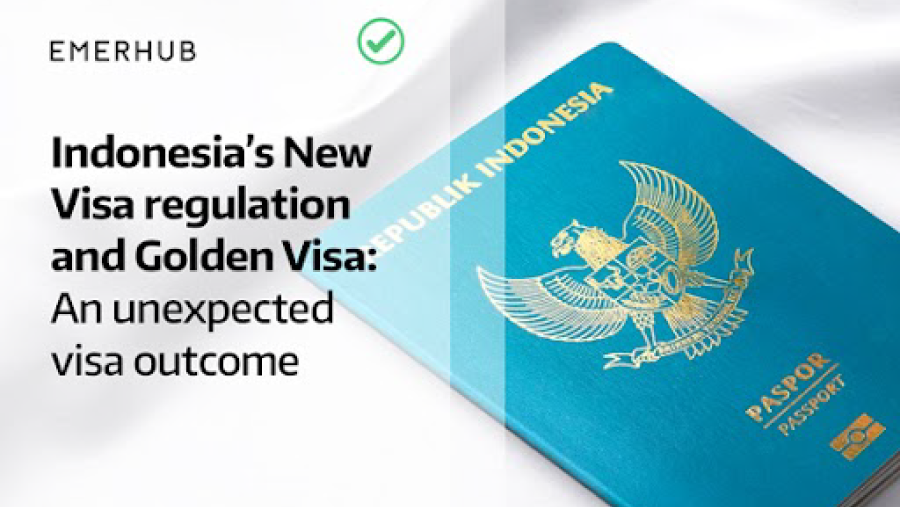Table of contents
A key step when expanding to a new market is choosing the best market entry strategy for your business. There are a few ways to enter an emerging market. You must choose one that will work best for your business.
In this article, we explain common market entry strategies used in emerging markets. Additionally, we will provide you with alternative ways to expand to emerging markets.
How to Enter a New Market
#1 Identify your target market
A common mistake among entrepreneurs is not identifying a target market. Knowing your prospective customers will help you choose your market entry strategy.
When identifying your target market, consider the demographics and location of your customers. You must also consider the psychographics of your customers. Psychographics include interests, behavior, beliefs, and values.
#2 Conduct market research
After identifying your target market, you can conduct market research. Market research consists of the following:
- Assessing the current market situation
- Determining the market size
- Assessing market trends
- Identifying and understanding competitors
- Understanding local laws and regulations
If you have not finalized which market to enter, conduct market research in each one. Compare the findings in each one to narrow down your selection. The results of your market research will also help you decide on a market entry strategy.
#3 Choose a market entry strategy
Using the results of your market research, choose a market entry strategy. There are several market entry strategies and each one has its own advantages. Some strategies also work better with certain types of customers than others. We discuss the different types of market entry strategies later on in this article.
Make sure that your strategy will help you meet your business objectives. You should not pick a strategy based solely on cost or convenience.
#4 Create a business plan
After choosing a market entry strategy, create your business plan. A detailed business plan contains full descriptions of your products and/or services. It should also include the strategies you will use to reach customers. In addition, the cost to start and operate your business must be a part of the business plan as well.
Emerhub can help you expand to new markets. We are familiar with the Indonesian, Vietnamese, Philippine, and Indian markets. Our consultants can identify your target market and conduct market research. We can also suggest market entry strategies and help you create your business plan.
Types of Market Entry Strategies
#1 Exporting/Trading
One way to enter a new market is through exporting goods. This strategy allows you to enter several markets simultaneously. You can assign a local distributor to conduct transactions with your buyers.
The main advantage of working with local distributors is access to their existing client base. They also have experience in the local market and will be able to share insights with you.
The downside to this, however, is that you will be dependent on your local distributor. You will have little control over your sales. This strategy also only works for companies that sell products, not services.
Import to Southeast Asia without import licenses.
Use Emerhub’s importer of record service.
#2 Licensing
Licensing is when you give legal rights to other parties to use your company’s name. Under a license agreement, the licensee can produce and sell products or offer services using your company name. In exchange, you will receive royalties.
Your company stands to gain a lot with minimal effort if your licensee performs well in the market. However, it also carries risks. For example, the actions of your licensee will affect your brand. As such, you need to make sure that you are dealing with a company that will protect your interests.
Emerhub can perform background checks on your potential licensees. You can also get comprehensive company profiles from Emerhub’s company registry. We can also assist in creating license agreements to protect your interests.
#3 Franchising
Franchising is similar to licensing in that it lets a separate entity use your company’s name for a fee. However, as the franchisor, you can set rules for how the franchisee must operate the business. You also retain control over branding. The franchising model is particularly popular with big brands like McDonald’s.
You have slightly more control over the business as a franchisor so it is less risky than licensing. But you can also run background checks on your potential franchisee.
#4 Joint venture
Simply put, a joint venture is a partnership between your company and one or more parties. Having a local partner brings many benefits like existing infrastructure. Your local partner will also be able to share insights on the market with you.
This is one way to make foreign direct investment in a new market. You will also have more control over the business than the previously mentioned options.
#5 Greenfield investment
A greenfield investment is when a company sets up operations in a foreign country. The use of the word “green” refers to the new facilities the company will construct. This strategy requires more capital investment than the ones previously mentioned.
The main advantage of a greenfield investment is having complete control over the company. Many emerging markets welcome foreign investment and allow full foreign ownership of companies. Note, however, that there are restrictions for foreign ownership in some industries.
Market entry strategies: capital investment and foreign ownership
Market entry strategies differ in terms of capital contribution and foreign direct investment. Some strategies do not require any foreign direct investment.
Without Foreign Direct Investment
Exporting
Licensing
Franchising
With Foreign Direct Investment
Joint Venture
Greenfield Investment
Additionally, the higher the capital contribution, the more control you have over foreign operations.
Exporting, licensing, and franchising requires little to no investment on your part. In line with this, you will also not have much control over the business, if any at all. Joint ventures and greenfield investments require more capital. But you will have partial or full ownership of the business.
Setting Up a Company in Emerging Markets in Asia
Allowed Foreign Ownership in Companies in Asia
Emerging markets in Asia welcome foreign investment. In fact, some countries allow full foreign ownership of businesses in many industries.
The table below shows some examples of industries that allow full foreign ownership in selected Asian countries.
| Country | Industries that allow 100% foreign ownership |
|---|---|
| Indonesia | Trading (wholesale and retail), IT, manufacturing, hospitality* *For hotels, the hotel must be at least 4 stars |
| Vietnam | Trading (wholesale and retail), IT, manufacturing, education, hospitality |
| Philippines | IT, business process outsourcing (BPO), education* *Teaching in higher education or training outside of the formal educational system |
| India | IT, biotechnology, e-commerce |
Emerhub’s consultants can advise you on allowed foreign ownership for your planned business.
Minimum Capital Requirements in Emerging Markets
Some countries, like Vietnam and India, do not have a minimum capital requirement to set up a company. Other countries have specific minimum capital requirements for businesses with foreign ownership.
This table gives a brief overview of minimum capital requirements in some of the biggest emerging markets in Asia.
| Country | Minimum capital requirement |
|---|---|
| Indonesia | IDR 2.5 billion (approx. USD 170,000)* *Companies with full or partial foreign ownership |
| Vietnam | None, but must be realistic for planned business activities |
| Philippines | USD 200,000* or PHP 5,000** *Companies with more than 40% foreign ownership **Companies with less than 40% foreign ownership |
| India | INR 500,00 (approx. USD 6,000)* *For Public Limited Companies; No minimum capital requirement for Private Limited Companies |
Company Registration
Indonesia
The requirements to set up a company (PT PMA) in Indonesia are as follows:
- Meet the minimum capital requirement.
- At least 2 shareholders. Shareholders can be individuals, corporate shareholders, or both.
- At least 1 commissioner and 1 director. At least 1 director must be a resident of Indonesia with a tax card. Commissioners and directors can be foreign nationals.
- A valid business address. Companies cannot use a residential address as the business address. You must find a location with the appropriate building permit for commercial activities.
Vietnam
To establish a limited liability company (LLC) in Vietnam, you must meet the following:
- A valid business address. You will need a business address to register your company.
- At least 1 resident director. The appointed director does not need to be a legal resident at the time of incorporation. However, he or she must have a residential address in Vietnam.
Philippines
The domestic corporation is a common legal entity in the Philippines. Despite the name, this type of legal entity is open to foreigners. The requirements to set up a domestic corporation are as follows:
- Meet the minimum capital requirement.
- At least 2 but nor more than 15 shareholders or directors. They can all be foreigners if the industry allows full foreign ownership.
- Corporate officers. All corporations in the Philippines must have a president, corporate secretary, and treasurer. It is important to note that the corporate secretary must be a citizen of the Philippines.
It is also possible to set up a One Person Corporation in the Philippines. As the name suggests, this type of corporation only has one shareholder. The requirements for this are the following:
- Meet the minimum capital requirement.
- 1 shareholder or director. If the business’ industry allows for full foreign ownership, the sole shareholder can be a foreigner.
- Corporate officers. All corporations in the Philippines must have a president, corporate secretary, and treasurer. It is important to note that the corporate secretary must be a citizen of the Philippines. Additionally, the president must be the sole shareholder.
India
To set up a Private Limited Company (Pvt Ltd) in India, you must meet the following:
- At least 2 shareholders and directors. A shareholder can be a natural person or corporate entity. However, only natural persons can hold a director role. Additionally, at least one director must be a citizen and resident of India.
Emerhub can help you establish a company in Indonesia, Vietnam, the Philippines, or India. Fill out the form below and one of our consultants will get in touch with you.
Alternatives for Market Entry in Emerging Markets
Outsourcing Business Processes in Emerging Markets
Setting up a company overseas is very costly. It is possible to test the market without establishing a legal entity by outsourcing. You can delegate business processes to a third party like Emerhub. This will allow you to carry out tasks without putting up a company right away.
Some process you can outsource include:
- Invoicing. Emerhub can accept payments from clients on your behalf.
- Importer of record. Emerhub will be your local consignee and accept shipments on your behalf. Through this service, you can import goods without applying for an import license.
- Employer of record. As your employer of record, we will hire local employees on your behalf. As part of this service, we will also take care of payroll and ensure that you remain compliant with local employment regulations.
Outsourcing not only allows you to enter new markets with minimal risk. You can also outsource tasks overseas so you can focus on your core business activities.
Emerhub can help you enter the biggest emerging markets in Asia. Fill out the form below and our consultants will get in touch with you.







